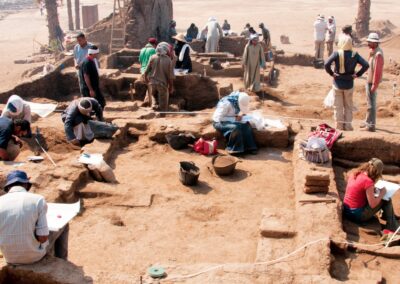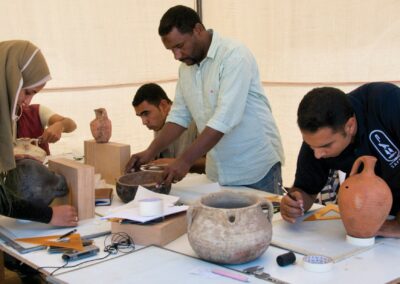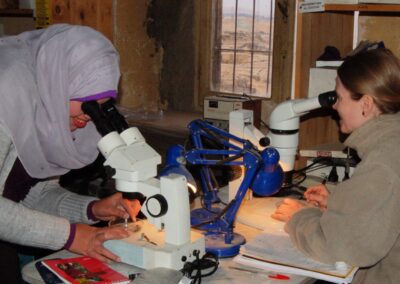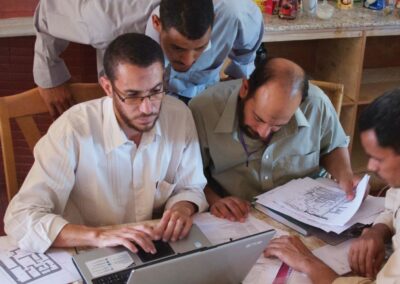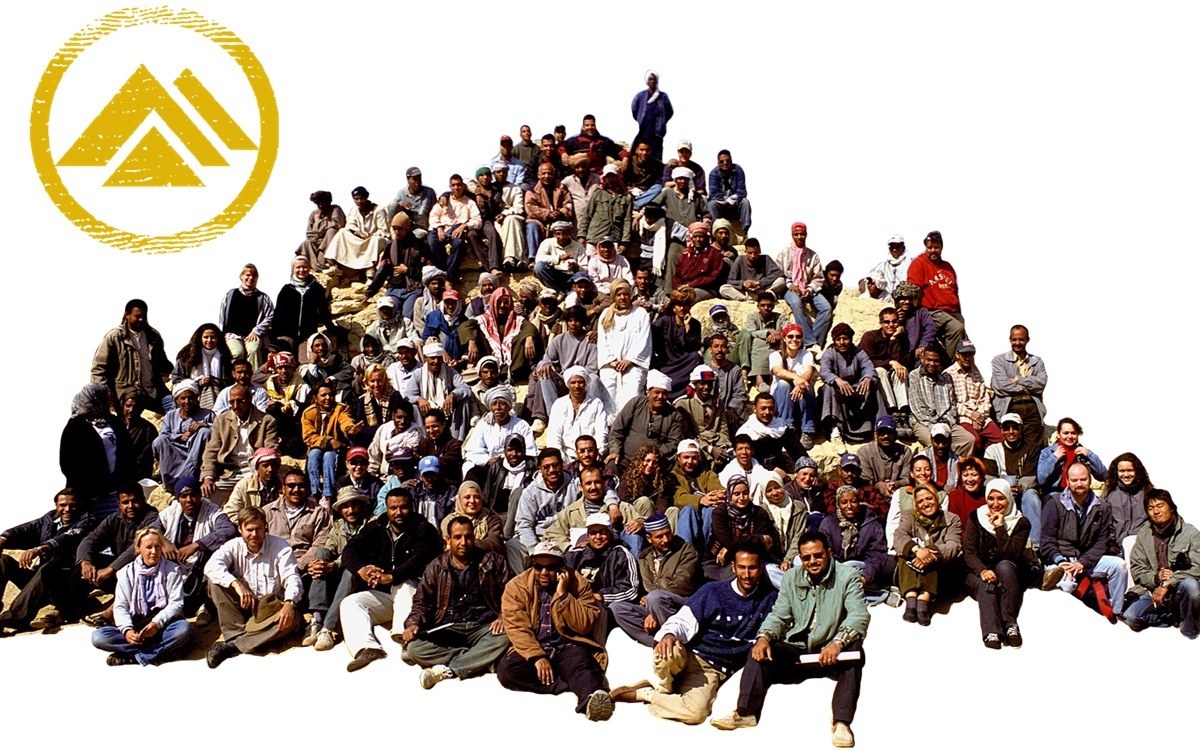

With your support, we are excited to relaunch AERA’s Archaeological Field School at the Lost City of the Pyramids. Also known as Heit el-Ghurab, this site once housed the workers and administrators responsible for constructing the pyramids.
Our field schools offer archaeologists from Egypt’s Ministry of Antiquities and Tourism invaluable hands-on training in scientific excavation. The Ministry has specifically requested that AERA resume this essential program. We are thrilled to begin a new series of large-scale excavations and field schools at the Giza plateau, which your generosity will help bring to life.
Watch Dr. Mark Lehner discuss our ongoing work in Egypt. Relaunching the AERA Archaeological Field School Program is part of our long-term goal to establish the Heit el-Ghurab Archaeology Preserve as a permanent research and training ground for Egyptian archaeologists. In the video above Dr. Lehner discusses our efforts to document, conserve, and understand this vast settlement site that once served as the base of operations for constructing the great pyramid complexes.
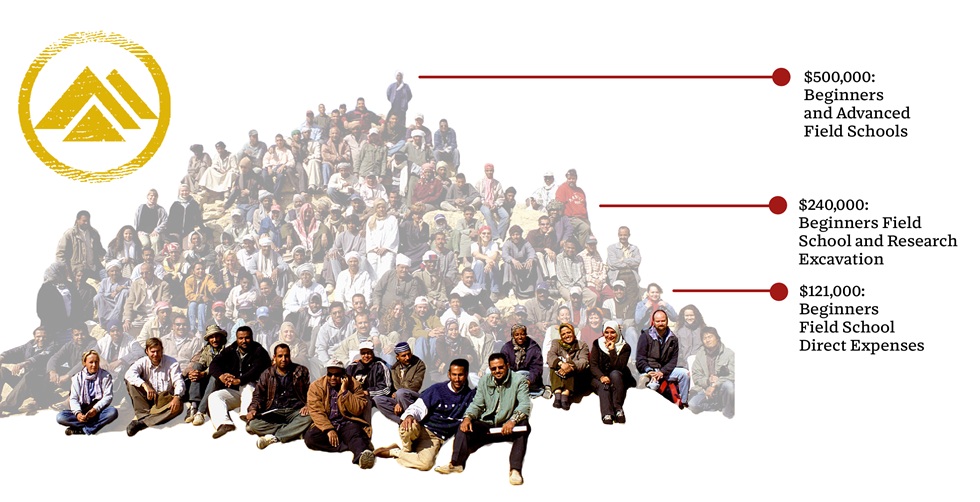
People Pyramid & Progress
We’re on our way! But we need your support to make it happen. Starting our Field School program again takes a pyramid of people—research scientists, students, professional archaeologists, drivers, cooks, staff, and more.
Rising opacity means greater capacity—each person in our 120-person pyramid represents $4160 in donations. Throughout this campaign we will fill in more team members thanks to your generosity.
Pulling together, we can help write history.

The Beginners and Advanced Archaeology Field School
AERA field schools embed training with research. We never make work up just to teach.
The Beginners Field School will excavate craft production areas located along the Lost City’s southern harbor, including Egypt’s oldest known faience production area, copper-working facilities, and an alabaster workshop.
Over an eight-week intensive excavation season, students will work with professional archaeologists to learn the principles and practice of stratigraphic excavation and how to document and preserve information—written, drawn, digital, and photographic. Students will also work in the AERA Giza Field Lab to learn how to extract information about people’s lives from animal bones, plant remains, clay sealings, pottery, and artifacts. After excavation is over, students will learn how to archive data and write reports.
These same students will return for the Advanced Field School to receive in-depth training in a concentrated area of interest—advanced excavation, archaeological illustration, ceramics analysis, survey, osteoarchaeology (the study of human remains), zooarchaeology (the study of ancient animal bone, or archaeobotany (the study of plant remains).
The AERA Field School Program
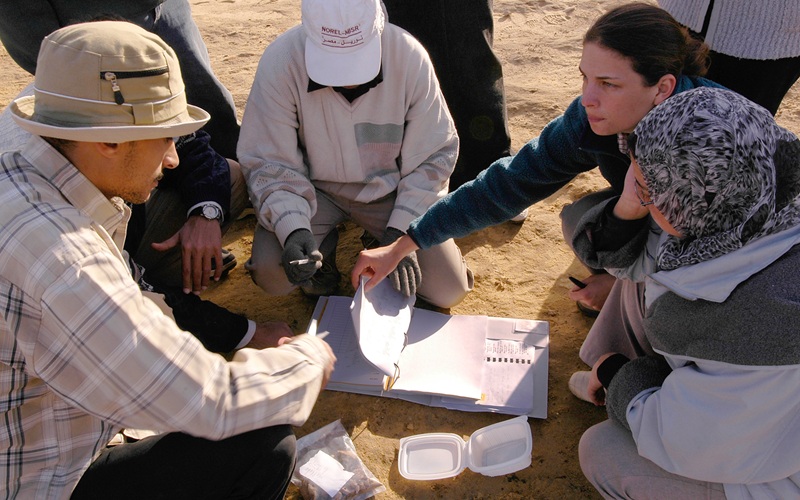
AERA’s Field Schools have trained over 390 Ministry of Antiquities and Tourism (MoTA) archaeologists in the best practices of scientific archaeology.
Our field school program empowers Egyptian archaeologists in the study of their heritage by equipping them with the skills to excavate, record, analyze, and publish material throughout Egypt. Our graduates have pursued advanced degrees, managed archaeological projects, taken leading positions in the MoTA, and taught in AERA Field Schools and MoTA training centers.
Learn more about our full field school program and all the skills we teach.
The Heit el-Ghurab Archaeology Preserve
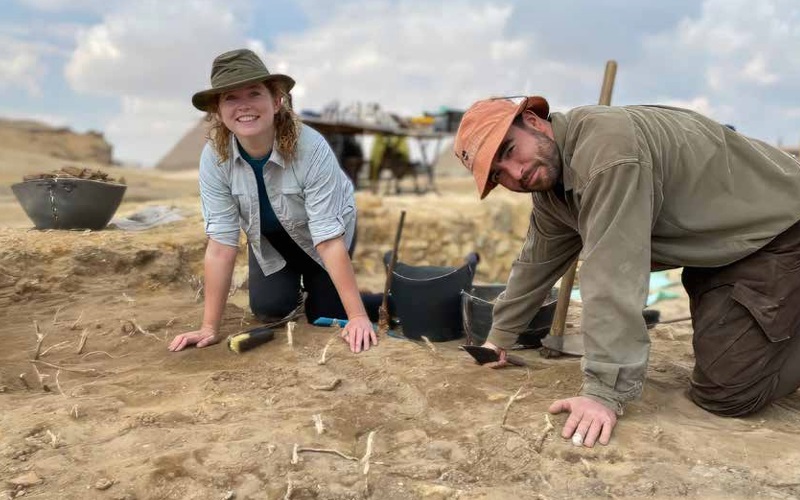
Our long-term goal is to establish the Heit el-Ghurab Archaeology Preserve as a permanent research and training ground for Egyptian archaeologists.
The archaeology of settlement sites like Heit el-Ghurab is challenging. Learning on a complex ancient settlement site provides our field school students with skills they can apply to tombs, temples, and any other kind of excavation site in Egypt.
Learn more about the Heit el-Ghurab site and the nearly 40-year history of our excavations.
Donation FAQ
Founded in 1985, AERA is a 501(c)(3) tax-exempt, nonprofit research organization.
Your tax-deductible donation can be made online here.
To donate by check, please make it payable to AERA and mail it to: AERA, 26 Lincoln Street, Suite 5, Boston MA 02135 USA.
For those interested in making a gift through an electronic transfer of stock, potentially saving on capital gains tax, please contact us at support@aeraweb.org for further details.
If you have any questions about your donation, please do not hesitate to reach out to us at support@aeraweb.org and we would be happy to assist you.
Your tax-deductible donation is an investment in the future of Egyptian archaeology and supports education and the conservation of world cultural heritage at one of the most iconic sites in Egypt.

